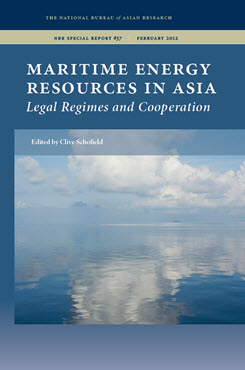UNCLOS and the Obligation to Cooperate
This essay seeks to clarify the obligatory language in the UN Convention on the Law of the Sea (UNCLOS) in order to improve compliance with the convention.
EXECUTIVE SUMMARY
This essay seeks to clarify the obligatory language in the UN Convention on the Law of the Sea (UNCLOS) in order to improve compliance with the convention.
MAIN FINDINGS
- The language of “shall” or “should” creates binding legal obligations for member states.
- The language of “may,” although ostensibly of a voluntary nature, essentially creates a standard of obligation that does not infringe on the sovereignty of states.
- There are two general categories of obligation: the obligation to exchange information and the obligation to consult or negotiate. The duty to exchange information takes the form of publicity, notification, and other exchanges, whereas the duty to consult or negotiate appears to be an implicit expression of the duty to cooperate rather than an express legal obligation.
POLICY IMPLICATIONS
- The different wording utilized by the 162 states that have signed UNCLOS and the consequent variations of interpretation show that there is a need for policy changes. Otherwise, the lack of uniform adherence to the convention could make UNCLOS the subject of ridicule.
- Given the convention’s silence regarding the manner of publicity and the implicit nature of certain provisions, negotiations for an amendment to UNCLOS are needed to clarify the complexity evident in the varieties of obligation.
- Policymakers must bear in mind that the duty to cooperate cannot be fulfilled by a one-time act. Rather, cooperation is a continuing process, and states thus must be willing to pursue and endure negotiations through which they can hold each other accountable.
- Domestic legislation in line with UNCLOS provisions is needed to ensure the compliance of member states, given that many Asian states do not directly implement treaty provisions but instead adopt similar domestic laws that courts then apply.


